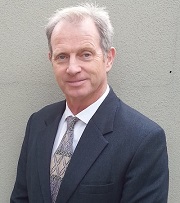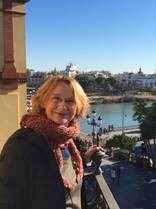HEAL takes great pride in providing students with the best possible learning experience, through carefully selected and trained tutors. Read about some of our tutors below.
Successful AMC candidates who have completed a HEAL AMC clinical preparation course have over the years, continuously provided feedback outlining that the clinical exam is not only about medical knowledge, but just as importantly focuses and assesses on communicating with a “patient”.
In our clinical courses, to ensure we have covered all aspects of the exam, we employ experienced doctors who guide our students to utilise their existing medical skills in OSCE stations but we also employ clinical communication educators to teach clinical and general communication skills. The clinical communication educators will facilitate the Clinical Communication workshop.
Paul Conroy - Clinical Bridging Course Teacher
Paul Conroy has a vast range of experience as a teacher of English for over 20 years. This includes teaching IELTS and OET preparation courses, English as an Additional Language (EAL) and as a Language Support Teacher (Victoria University) for international and allied health students.
Having taught clinical communication skills with HEAL for over 20 years, Paul brings with him a notable list of qualifications inclusive of a BA in Professional Writing and Editing (Deakin), CELTA (English Language Teaching, Holmes College), a Graduate Diploma in Secondary Education (Monash University), as well as a MA in Applied Linguistics (University of Melbourne).

Given his impressive resume, Paul has consistently received extremely positive feedback from International Medical Graduates (IMGs) who have undertaken a HEAL clinical course. Paul says of his approach;
"At the beginning of a [clinical] course, everyone is nervous. They have quit their jobs as doctors in their home countries and come to a new culture. Then they must start learning again about how to practise as a doctor in Australia. I would be nervous too. So, I create an environment in the classroom where the doctors feel comfortable to make mistakes, because making mistakes is part of the learning process.”
IMGs greatly benefit from Paul's extensive knowledge and passion, gaining crucial skills for the AMC Clinical Exam and future careers, including what to say, how to say it, and the cultural reasons behind it.
“The Australian health system has changed enormously in the last 20 years. The doctor and the patient are (more or less) equal. So, patients are more like customers and as customers they will not tolerate a superior attitude from a doctor plus they demand to be informed about, for example, their diagnosis and management plan. Consequently, patients can disagree with the doctor and expect to have input into the plan.”
So, what does this mean for learning clinical communication skills in the HEAL Program?
“I find the best way to maximise the IMGs’ learning is not so much by listening to lectures but by students’ participation. Just like a stress echo test on a treadmill simulates stress on the heart muscle, practising cases like in the real, patient-centered AMC Clinical Exam simulates the exam experience so that when the IMGs sit the real exam, they will be ready to go.
Catherine O'Grady - Clinical Bridging Course Teacher
Dr Catherine O'Grady is a highly experienced teacher and researcher in the area of clinical communication. She holds a PhD (Applied Linguistics) receiving the Macquarie University Vice Chancellor's commendation award for her thesis on the nature of expert communication required for the General Practice of medicine. Other qualification include BA (UNSW), Master of Arts with Merit (Applied Linguistics) and the M.A.K Halliday Medal (University of Sydney) and Graduate Diploma in TESOL (Macquarie University).
Catherine has conducted clinical communication skills courses for International Medical Graduates since 1998 for organisations that include South West Sydney Area Health Service, RACGP Sydney and HEAL since 2013.

Catherine makes it a priority to focus on clinical scenarios that are particularly challenging from a communication perspective, and structures communication sessions as exam-like cases; challenging themselves whilst being provided with instant and constructive feedback..
She knows the importance of communication and its integral role in a clinical scenario. One of the most beneficial exercises that course participants report is participating in role plays with Catherine playing the patient. Feedback states that this helps participants to recognise the impact of what is being said, how it can shape the overall direction of the consultation and the quality of the information that the patient discloses.
